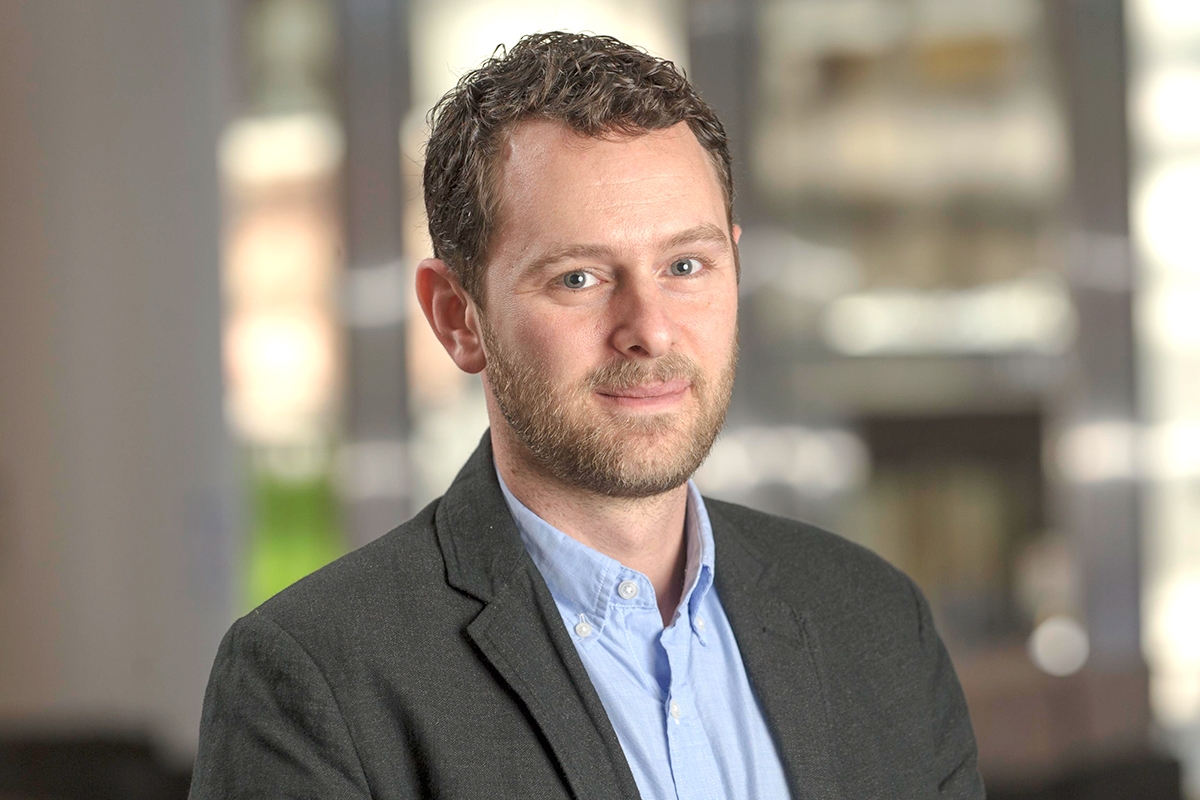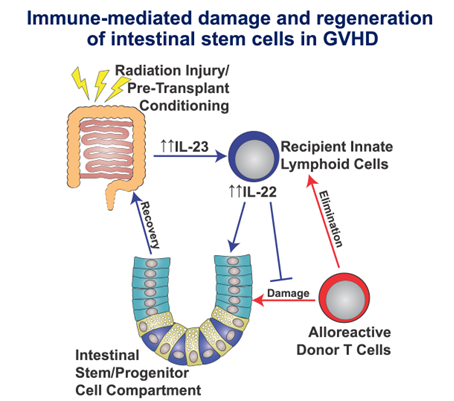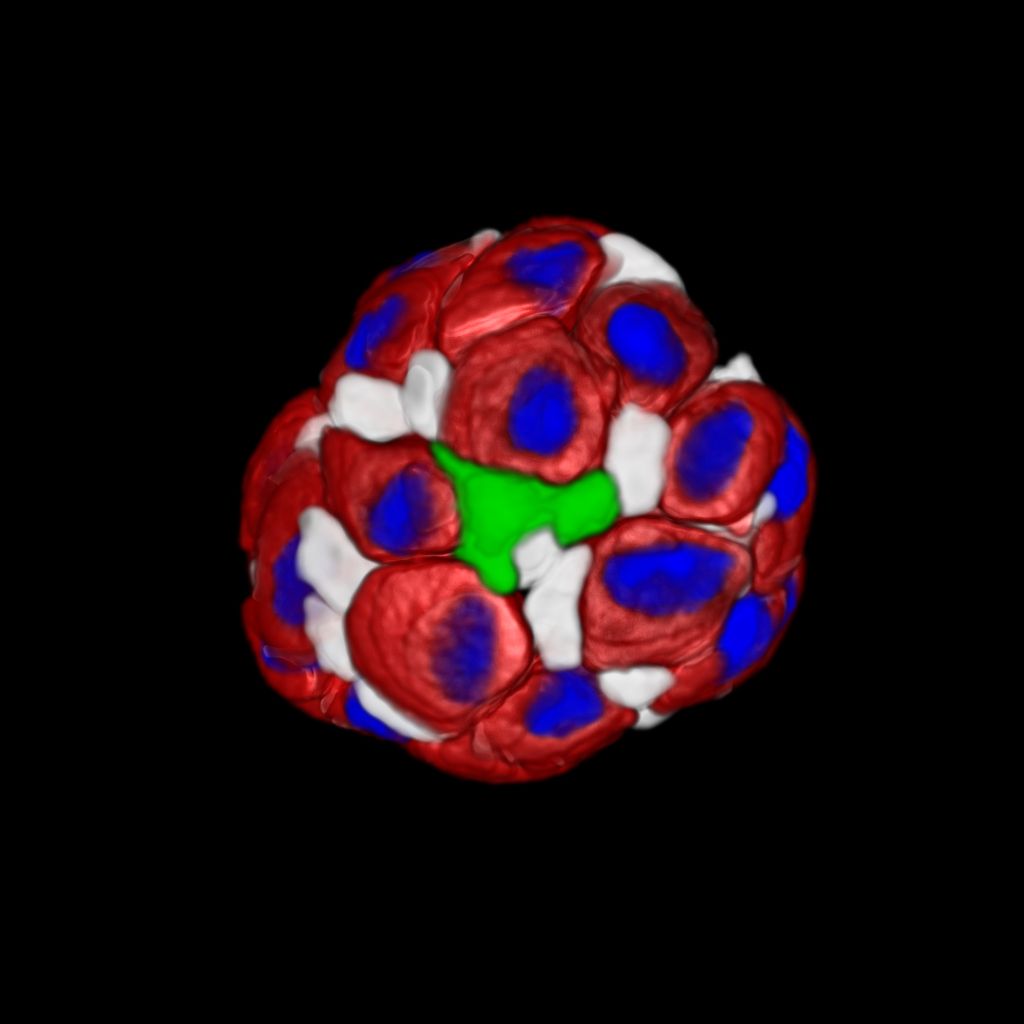
Research
We are interested in learning fundamental principles that underly interactions between the immune system and tissues. We are particularly interested in understanding how the immune system can physiologically shape the function of tissue stem cells and how the immune system can pathologically cause damage to these stem cells. We focus on the intestinal stem cell compartment, as the gastrointestinal tract is an important site of toxicity after bone marrow transplantation. To accomplish this, we utilize in vivo and ex vivo experimental models that we can interrogate functionally and with advanced imaging to learn what the immune system is doing and where it is doing it. Our ultimate goal is to use these biologic insights to develop new approaches for optimizing transplantation and cellular therapy.
Figure 1.

Caption: Radiation injury activates innate lymphoid cells to produce Interluekin-22 and promote recovery of intestinal crypts. However, in graft vs. host disease (GVHD) occurring after bone marrow transplantation, donor T cells cause damage to the crypt stem cell compartment and to the innate lymphocytes protecting it.
Figure 2.

Caption: Intestinal crypt showing intestinal stem cells (white), Paneth cells (red with blue nuclei), and an infiltrating allogeneic donor T cell (green).
Current projects:
- Cytokine-mediated regulation of intestinal epithelium
- Cytokine-mediated regulation of T cell function
- Effects of immunosuppressive medications on tissues
- Localization of lymphocytes within the intestines
- Characterization of lymphocytes in patients undergoing hematopoietic transplantation
Bio
Alan Hanash graduated from the University of Michigan and then pursued his M.D. and Ph.D. degrees at the University of Miami, where he studied transplant immunology with Robert Levy. He then trained in internal medicine at the University of Chicago and medical oncology at Memorial Sloan Kettering Cancer Center (MSKCC), where he trained with Marcel van den Brink, studying cytokine responses in experimental bone marrow transplantation (BMT). Dr. Hanash is now an attending physician on the Adult BMT Service at MSKCC, and his laboratory studies transplant immunology, focusing on how innate and adaptive immunity impact the intestinal epithelium. Their research has demonstrated that the intestinal stem cell compartment is targeted by donor T cells after BMT and that Interleukin-22 derived from innate lymphoid cells can protect the stem cells and stimulate epithelial regeneration. This work led to a multi-center clinical trial treating transplant patients with a novel recombinant human IL-22 dimer in order to promote intestinal recovery from graft vs. host disease.
Distinctions.
- Amy Strelzer Manasevit Research Fellow
- American Society of Hematology Scholar
- American Society of Blood and Marrow Transplantation New Investigator
- Elected to The American Society of Clinical Investigation
- Director of Laboratory Science, American Society for Transplantation and Cellular Therapy Board of Directors, 2022-2025
- Former Chair, American Society of Hematology Scientific Committee on Transplantation Biology and Cellular Therapies
